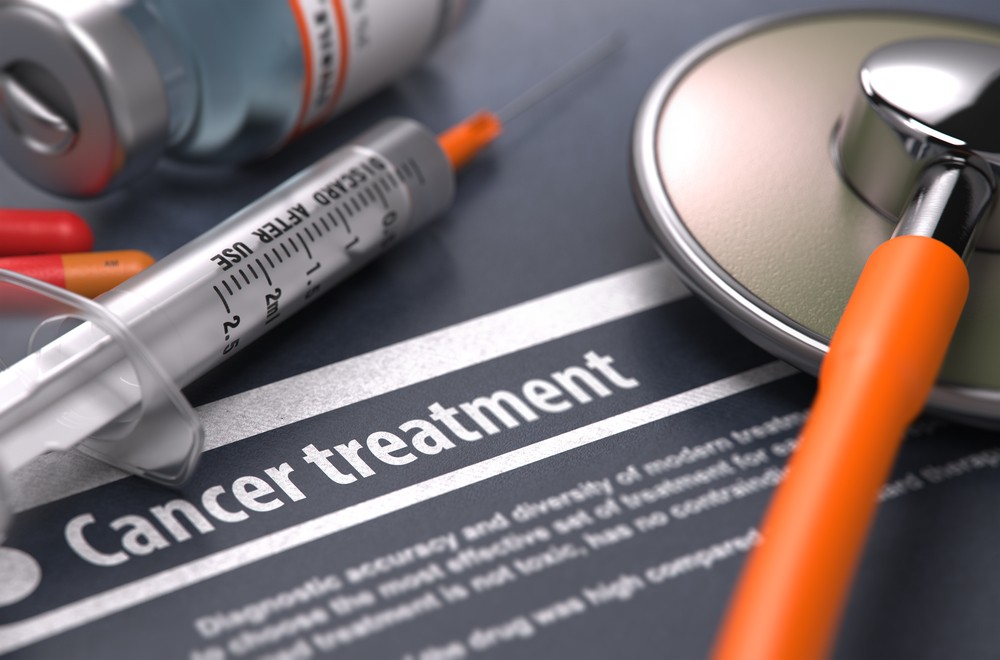Popular Reads
Top Results
Can't find what you're looking for?
View all search resultsPopular Reads
Top Results
Can't find what you're looking for?
View all search resultsCancer patients in Indonesia often late to seek treatment
According to the National Cancer Prevention Committee (KPKN), two in three cancer patients in Indonesia only seek treatment in the late stage, resulting in a low survival rate.
Change text size
Gift Premium Articles
to Anyone
R
ifaldi was only 2 years old when he was diagnosed with Wilms' tumor, a rare kidney cancer that affects mainly children. His family suspected that something was wrong when his belly kept swelling, which is a common symptom of the disease.
“I spent most of my childhood at the hospital,” Rifaldi said on Thursday. “I did not have many friends back then, because I could not play outside like the other kids,” he added.
Rifaldi was lucky to have attentive parents. After 10 rounds of chemotherapy and five surgeries, the now 15-year-old is proud to call himself a cancer survivor. He now lives with only one kidney but says he can perform any activity, just like other teenagers his age.
Other cancer patients are not as lucky. The 2018 Basic Health Study (Riskesdas) shows that the prevalence of cancer has increased from 1.4 per 1,000 residents in 2013 to 1.79 per 1,000 residents in 2018.
The chairman of the National Cancer Prevention Committee (KPKN), Soehartati Gondhowiardjo, said 65 percent of cancer patients in Indonesia only sought treatment in the late stage, resulting in a low survival rate.
“Cancer is actually [curable], if [patients] are aware of the symptoms,” she said on Thursday.
According to Soehartati, many patients delay going for a check-up because of misinformation regarding cancer symptoms and treatment.
“Many misconceptions regarding cancer and cancer treatment circulate in social media. For example, some people suggest that eating raw ginger will cure cancer, some suggest wearing an anticancer jacket; things like that,” Soehartati said.
Aside from the lack of awareness and misinformation, Soehartati also took issue with the administrative system of the Health Care and Social Security Agency (BPJS Kesehatan) that runs the national health insurance (JKN), which she said was too complicated for cancer patients and often delayed proper treatment.
“Our committee is working on solving this issue right now. Hopefully, cancer patients don’t have to go through a long referral [process], so that they can receive treatment as soon as possible,” she added.
Soehartati said her committee was planning to open a 24-hour cancer center to help patients receive treatment as soon as possible.
The ministry’s noncommunicable diseases prevention and control director, Cut Putri Arianie, said the ministry would keep up its efforts to optimize health facilities nationwide. Cut said many national hospitals were already equipped with cancer treatment centers.
“We will work on this issue, so that regional hospitals are equipped with cancer treatment facilities as well. The ministry will gradually [set up such] centers at other hospitals, since we have to spare a lot of funds for that too,” she said.
Speaking at an event to commemorate World Cancer Day on Monday, Health Minister Nila Farid Moeloek called on the people to increase their awareness of cancer and cancer symptoms.
"Forty-three percent of cancer cases are actually treatable if the people affected seek treatment as soon as they become aware that something is wrong with their bodies," Nila said.
Unfortunately, she said, people nowadays trusted information from the internet very easily, which could keep them from seeking actual treatment.
"For example, a lot of information on the internet encourages people to choose alternative treatment, even if the effectiveness has yet to be scientifically proven," she added.










